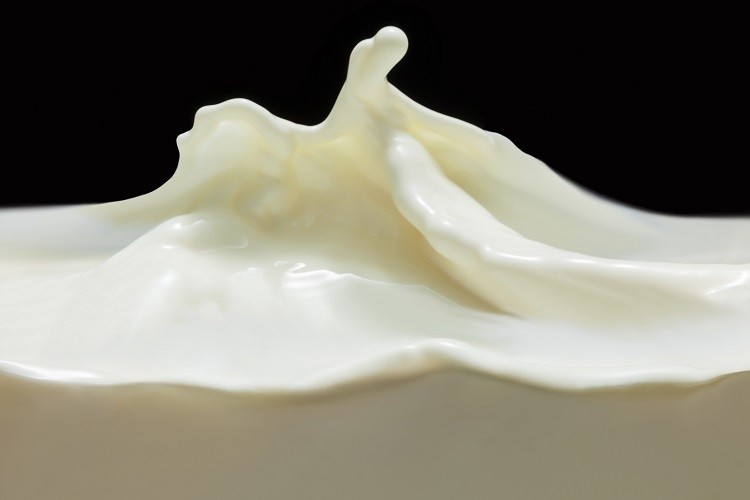In a proposed draft steerage issued final week, the US Meals and Drug Administration (FDA) said that plant-based milk options might proceed to explain their merchandise as ‘milk’. The rationale offered was that “shoppers usually perceive that [plant-based milk alternatives] don’t comprise milk and select to buy PBMA as a result of they don’t seem to be milk”.
The scenario could be very totally different within the UK, the place utilizing phrases equivalent to ‘oat milk’, ‘vegan cheese’, and ‘plant butter’ is prohibited.
Again in 2017, the European Court docket of Justice banned using dairy names equivalent to ‘milk’, ‘butter’, ‘cheese’ and ‘yoghurt’ – with some exceptions – within the dairy-free class. Being a member of the EU on the time, these legal guidelines robotically utilized to the UK. Three-years post-Brexit, they nonetheless do.
However some within the UK hope the Authorities is paying attention to the FDA’s actions throughout the pond. If the US is allowed to make use of dairy descriptors, ought to a post-Brexit UK?
Brexit: a possibility to ‘launch the shackles’?
The Plant-Based mostly Meals Alliance UK (PBFA) perceives the UK’s departure from the EU a possibility for promote and encourage plant-based innovation on house soil. The Authorities needs to be working to draw innovation, and regulation ought to observe swimsuit, instructed PBFA chief govt Marisa Heath on the William Reed Plant-Based mostly Steering Group assembly final week.
The UK may ‘launch the shackles’ and inform stakeholders that ‘the place to come back and innovate is the UK’. “Come and [innovate] right here, as a result of we’re going to eliminate all of these [outdated laws] holding up the sector.”
PBFA needs to eliminate EU laws on dairy descriptors within the UK. “Aren’t we post-Brexit? [We need to] give you new laws that’s trendy for the UK and could possibly be used as a platform… for different nations to observe.”

There have been solutions, nevertheless, that the UK could possibly be transferring in the wrong way. ProVeg UK has claimed the British Authorities is getting ready to ban plant-based merchandise from utilizing dairy descriptor names equivalent to ‘m*lk’, ‘mylk’, and ‘b*tter’.
The meals consciousness charity cited manufacturers in danger embody Flora Plant B+tter, M.L.Okay.Ology, Wunda Plant Based mostly not Milk, and Mylk.
PBFA, too, informed us the UK is looking for to additional tighten a British ban on using dairy phrases for plant-based meals. “The purported rationale for the extra restrictions proposed by an advert hoc group of Buying and selling Requirements Officers – the Meals Requirements and Data Focus Group (FSIFG) – is that UK shoppers could also be confused by phrases like ‘plant-based cheese’, ‘oat milk’ and ‘plant butter’, despite the fact that American shoppers are trusted to know them.”
A draft opinion from the FSIFG is certainly underneath method. “The draft is at present in progress, and a spread of views on potential interpretation have been thought of, together with from representatives of plant-based meals producers,” FoodNavigator was informed by sources near the event of the opinion earlier this yr.
Highlight on client confusion
If, because the FDA believes, US shoppers perceive that plant-based milk options don’t comprise milk, is it doubtless UK shoppers do, too?
In response to new analysis performed plant-based firm Upfield – which owns dairy-free manufacturers Flora, Bertolli, Emlea, and Violife, amongst others – shoppers are neither confused nor misled. Outcomes revealed shoppers had been just one% extra sure concerning the provenance of dairy merchandise than non-dairy.
Regardless of having a reputation which nods to dairy butter, for instance, 91% of shoppers had been assured in accurately figuring out Flora Plant B+tter Salted as a non-dairy product.
“Do British officers actually assume that Brits are incapable of understanding the phrases that folks throughout the pond clearly don’t battle with?” mentioned Dominic Brisby, Upfield’s Regional President of Europe.
“There may be completely no drawback with shoppers being confused. Shoppers know precisely what merchandise they’re choosing off grocery store cabinets.”
PBFA’s chief govt mentioned she welcomes the FDA’s recognition that customers are ‘merely not confused’ by commonly-used plant-based phrases.
“There may be completely no purpose to limit the wording on plant-based milk packaging. As a substitute, we needs to be doing all we are able to to advertise these merchandise to allow an accelerated transition to local weather pleasant diets which is significant to assist stop ecosystem collapse.”
The Good Meals Institute (GFI) Europe, too, believes the FDA needs to be ‘applauded’ for coping with this ‘non-issue in a standard sense method’. “Shoppers, each in america and within the UK, are usually not shopping for plant-based dairy out of confusion – demand is rising as a result of individuals need extra sustainable choices,” mentioned Linus Pardoe, UK coverage supervisor at GFI Europe.
“The truth that the UK Authorities is contemplating even tighter restrictions on plant-based dairy labels seems to be much more absurd in gentle of this. Ministers ought to as an alternative observe the proof, rethink the UK’s current outdated guidelines, and permit shoppers to make knowledgeable selections.”
Coping with dietary variations
Not all agree. Commerce affiliation Dairy UK is supportive of laws defending phrases equivalent to milk, cheese, and yoghurt, which prevents makers of other merchandise from utilizing them on any of the packaging or inside advertising and marketing of their merchandise – topic to sure exemptions.
“These laws are important in guaranteeing shoppers are usually not misled concerning the merchandise they’re shopping for; dairy merchandise like milk are extremely nutrient wealthy and even with fortification, options are usually not capable of present the identical ranges of nutritional vitamins and minerals because the merchandise they’re attempting to mimic,” Dairy UK chief govt Dr Judith Bryans informed this publication.
“It’s nice that customers have such a spread of alternative these days, particularly for these struggling with allergy symptoms, who’re unable to eat dairy. Nonetheless, the huge compositional variations between dairy and imitation options implies that calling a plant-based substitute ‘milk’ could be inappropriate.”

Dr Bryans’ touch upon dietary composition is much more topical, because the FDA draft steerage proposal suggests producers of plant-based milk options ought to show ‘distinguished’ on-pack info that highlights which vitamins are missing in these merchandise.
“Many shoppers will not be conscious of the dietary variations between milk and PBMA merchandise,” famous the FDA. Subsequently, PBMA merchandise ought to embody a “voluntary nutrient assertion that conveys how the product compares with milk primarily based on the US Division of Agriculture’s Meals and Diet Service fluid milk substitutes nutrient standards”.
This factor of the FDA’s draft steerage, PBFA doesn’t help. “I don’t assume we wish to be happening that street in any respect,” mentioned chief govt Heath on the Plant-Based mostly Steering Group assembly. And if a nutrient assertion front-of-pack was instructed for all plant-based options, this might not solely be ‘problematic’, however ‘discriminatory’, she defined.
“It’s far too easy and discriminatory to say that plant-based merchandise have to try this, however then meat wouldn’t should say it comprises ‘X occasions the saturated fats than a plant-based product’. It doesn’t make sense to us.”



